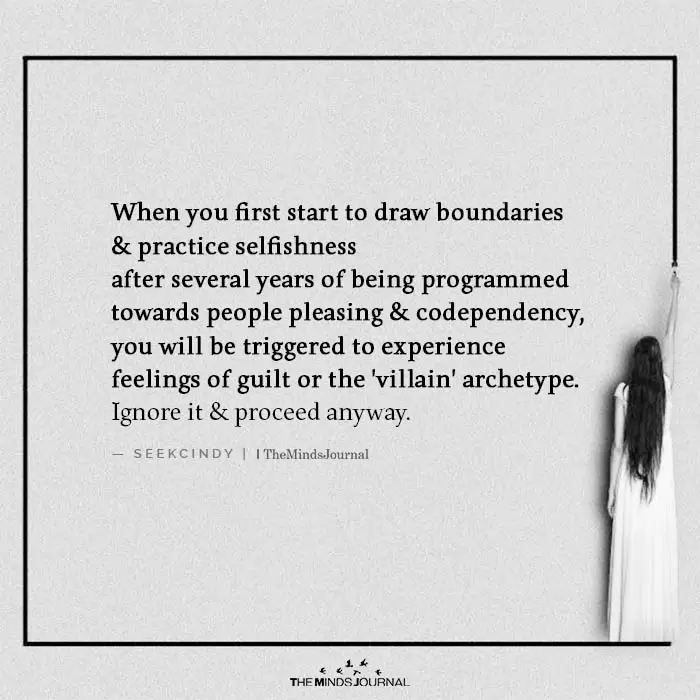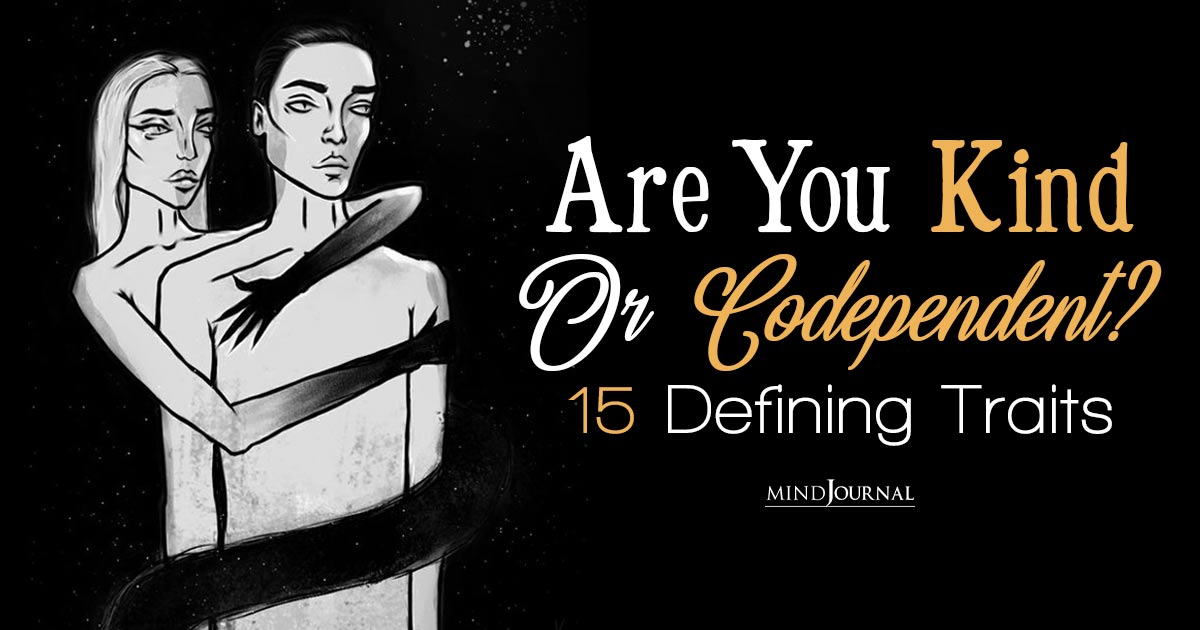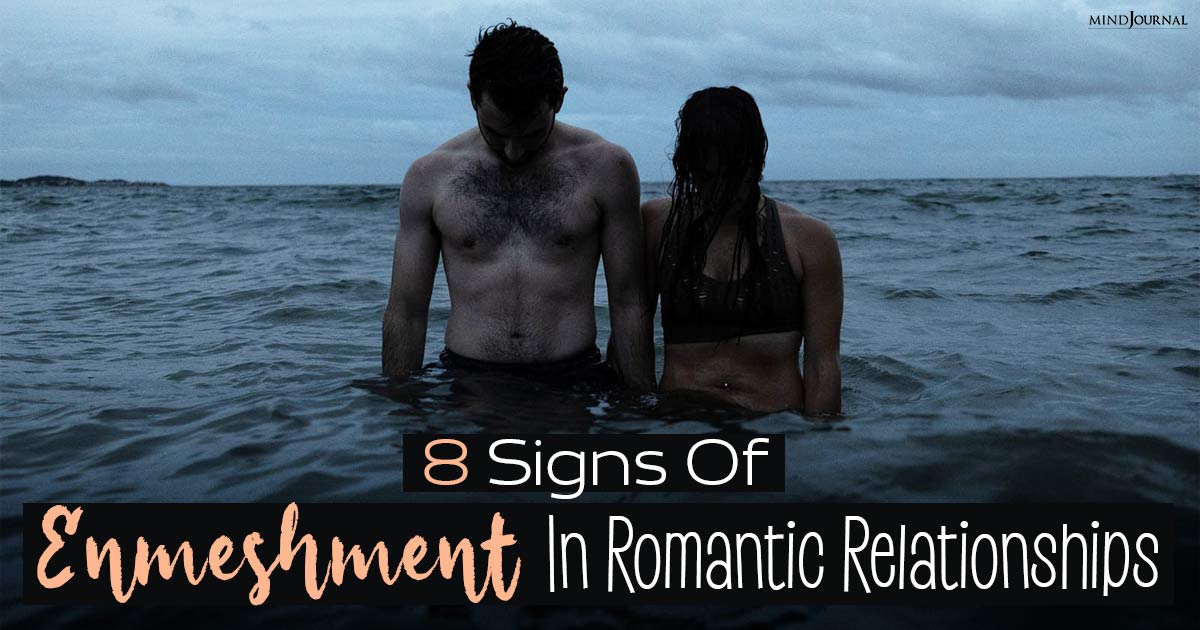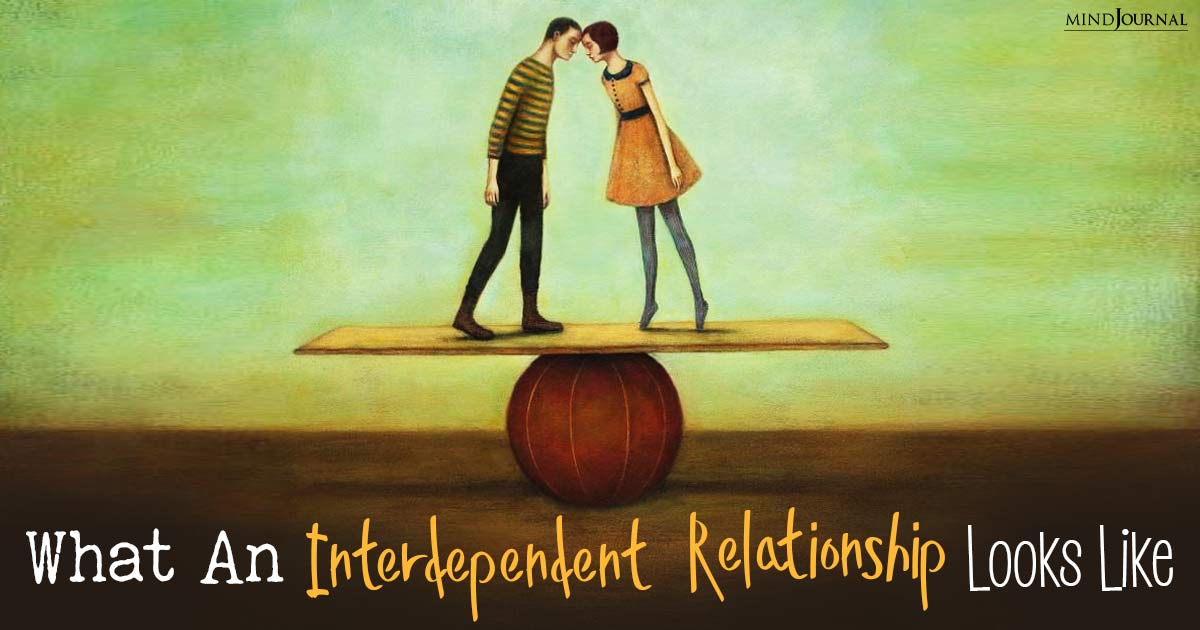This is for all the helpers and the people who regularly feel the need to save the day for everyone. It’s a great quality to be so helpful all the time but it can be done for the wrong reasons. Codependency is grey, similar to narcissism. You can either be an extreme codependent or a higher functioning person with codependent tendencies.
The extreme codependent has a need to be around people all the time, always be in a relationship, is needy with low self-esteem, and basically cannot take care of themselves in many ways. This person helps everyone and every situation because they have no sense of self.
Related: Here’s What You Need to Understand About Codependency
The higher functioning person with codependent tendencies is likely to only be this way with specific people, and not everyone. They somewhat know what they think and how they feel, and have some sense of relationship with themselves, but they don’t always honor that. Both of these people struggle with the same things but do it in a different way.
There are two big reasons codependents take on so much – poor boundaries and suffering from being the caretaker all the time. The caretaker just wants to help and feels it’s their responsibility to solve everyone’s problems. This person takes on other people’s problems as if they are their own. Oftentimes, being an empath and a codependent go hand-in-hand. If you don’t have any boundaries and don’t have a strong sense of self as an empath, you are probably codependent.
If you suffer from the caretaker mentality, you likely grew up in an out-of-control home where you felt the adults in your life were not capable of handling things. You probably stepped up and did things for yourself and maybe others; such as a parent, siblings, or other family members. You learned at a young age that you had to be the caretaker, and noticed you weren’t nurtured the way you should have been.
Because you felt out of control, you learned what you feel gets suppressed so that became your programming. In a relationship, you always put yourself second and the other person always comes first. It’s hard for you to understand that you must separate yourself from someone else’s life. You take on everything because that sense of feeling out of control makes you want to fix it. It’s quite exhausting though, and not healthy at all, but it gives you a sense of relief because that’s what you were programmed to do.
When you begin to heal from codependency, you need to start putting the focus on yourself. You must have a good sense of self and know how you feel. You must take care of yourself first, and cannot be everything for everyone all of the time, because you are doing this from an unhealthy place.
There’s a difference between wanting to help someone because you can and doing it because you feel you must get involved and solve their issues. You are going off of programming and this is just how you’ve always been, but you need to stop and think about which direction to go in.
Related: 7 Ways To Transform Clingy Insecurity Into a Superpower For Healthier Relationships
Here’s the difficult part – if you take a different direction than you usually would, it might not be comfortable. This is because you are changing a habit and that feels very uncomfortable in the beginning. You may feel guilt and shame, and your mind will go to a place to support the old stories. It’s because you are not used to putting yourself first and don’t know how you feel.

One thing that can help is to not be so reactive to life. Practicing slowing down and not being so quick to react, and asking yourself why you want to do this is a must. Get in the habit of asking yourself, “Do I need to do this? Am I filled up enough that I want to help?” We all want to help other people when they need it, but the difference is as a codependent, you’re doing it all the time regardless of your own feelings.
It is important to find a balance between helping others and loving yourself. Setting boundaries with other people is another thing that must be done. And remember, sometimes you need to let other people fix their own issues because that’s how they will grow on their own. Everyone has their own life journey that they need to go through and learn from.
Related: 8 Tips For Managing Codependency And Taking Better Care Of Yourself
If you are extreme codependent with low self-esteem and need constant validation from others, you are yearning for love and acceptance and for people to see the good work you’re doing. It’s time to start being more mindful and less reactive and start healing the deep wounds that have caused this behavior.
It’s the wounds that keep you stuck in a cycle, and you need to break that cycle. A lot of healing is reprogramming and when you start practicing that, it will begin to get easier and easier.
Written By Stephanie Lyn Originally Appeared In Stephanie Lyn Life Coaching





Leave a Reply
You must be logged in to post a comment.